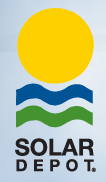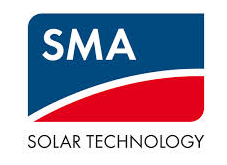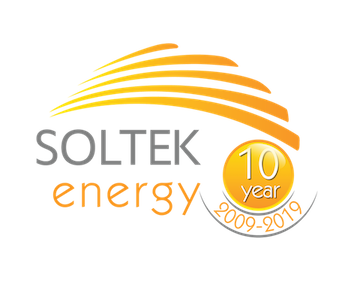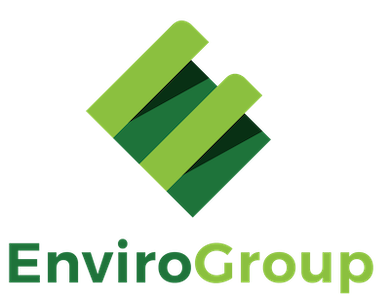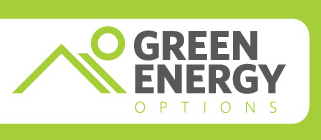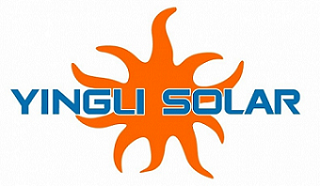

Finn's Yingli Solar Panels Review & Verdict
Finn Peacock has been a Chartered Electrical Engineer since 1998, and is ex-CSIRO
As far as I know, Yingli solar panels have not had any major issues with reliability and have done well in independent tests. As they have an Australian office and survived restructuring a few years ago after hitting dire straits, I'd say Yingli are probably not a bad choice for people looking for lower-cost panels. But there are other good Chinese brands to choose from.
While they are not among the solar panels we currently recommend, this may change over time if we consistently receive good feedback on them. However, we haven't received many reviews (either positive or negative) on Yingli panels for some years.
Yingli Solar Panels: Pros & Cons
- Well-established company
- Panels seem to be of decent quality
- Priced for budget-conscious buyers
- Company has experienced financial instability in the past
About Yingli Solar
Yingli Solar is a Chinese manufacturer of solar panels with an Australian office in Sydney. Yingli Solar used to be the world’s largest producer of solar panels but started suffering serious financial difficulties that put its future survival at stake. Despite the challenges it faced, Yingli restructured and remains in business.
Address: Level 10, 210 Clarence Street, Sydney NSW 2000
Tel: 1300 309 489
Email: [email protected]
Australian website
Company Information
Yingli Solar was founded in 1998 and commenced production of solar panels in 2003. Yingli’s headquarters are in Baoding, a huge city of over 11.5 million 150km south-west of Beijing. This is unusual as most solar panel manufacturing occurs around Shanghai rather than Beijing.
After Yingli commenced operations, it rapidly expanded and become the world’s largest module manufacturer in 2012 and 2013.
Unfortunately, that didn’t turn out too well for them, as Yingli grew too fast and took on too much debt in the face of falling panel prices. This resulted in the firm reducing the number of employees from over 19,000 in 2013 to only around 7,100 in 2018. In June 2018 they were delisted from the New York Stock Exchange due to inadequate market capitalization.
Yingli underwent restructuring with its shareholders receiving nothing and losing the entirety of their investment, while leaving the company operating. In 2021, Yingli's Chairman declared the firm to be financially healthy again. Somewhat backing this up, Yingli regained its Bloomberg Tier 1 status. If a panel is tier one it means large financial organizations are willing to lend money to projects using them. It's not a direct measure of panel quality but it is good evidence that a manufacturer's panels are reliable and the company is financially stable.
In 2022, the firm announced the start of construction of its new 5GW industrial park focusing on N-type TOPCon technology.
Yingli Solar's annual production capacity was expected to reach 10GW for cells and 15GW for panels by the end of 2023. Since it was founded, it has shipped more than 30 GW of modules worldwide.
Yingli Solar Panels In Australia
Yingli produces a wide range of solar panels that are currently approved by the Clean Energy Council. But the only models really suitable for residential installations are some in the Panda range.
These Panda n-type TOPCon bifacial double-glass modules are available in front-face capacities of 440W to 455W in 5W increments. Bifaciality can add some extra power - but don't expect much if they are installed flush with your roof, as most residential solar panels in Australia are.
Yingli Panda panels offer up to 22.8% maximum conversion efficiency in a module that measures 1762 mm x 1134 mm x 30 mm and weighs 21 kilograms. All variants in this range have a temperature coefficient of Pmax of -0.29 %/°C; meaning they are well suited to hotter temperatures. And on that note, the Panda's operating temperature range is -40°C ~ 85°C.
Warranty Information
Yingli Panda panels sold in Australia have a product warranty of 25 years and a performance warranty of 30 years. The 30 year performance warranty promises the degradation of power output in the first year shall not exceed 1.00% and the panels will have a minimum of 87.40% of their original capacity by its end.
Yingli Solar has no solar panels in our database
Filter by:
Yingli Solar Reviews (10)
Show Most Relevant reviews from All time
- 5 star 2
- 4 star 8
- 3 star 0
- 2 star 0
- 1 star 0
View Timeline
07 May 2016
27 April 2016
07 March 2015

